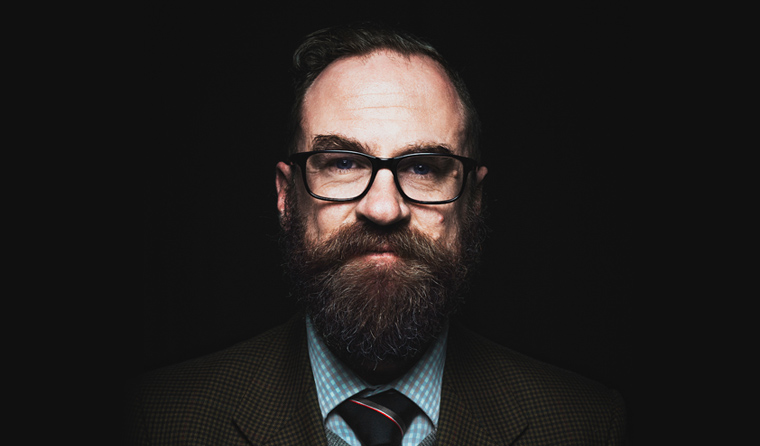News
Stem cell research offers hope for people with cystic fibrosis
University of Adelaide research shows cell transplant therapy has the potential to prevent onset or halt lung disease in cystic fibrosis patients.
 Young woman doing inhalation with a nebulizer at home to clear her airways.
Young woman doing inhalation with a nebulizer at home to clear her airways.
Researchers at the University of Adelaide have successfully shown it is possible to replace unhealthy cells causing cystic fibrosis with healthy ones, raising hopes of managing the genetic disorder.
Published in BMC journal’s Stem Cell Research and Therapy, the Epithelial disruption: A new paradigm enabling human airway stem cell transplantation study on mice applied cell transplant therapy normally used in bone marrow transplants to treat immunodeficiency disorders.
Cystic fibrosis is a genetic disorder which affects a person’s lungs and digestive system, causing a build-up of mucus that seriously impairs their breathing and significantly increases the chances of chest infections.
Lead researcher, Dr Nigel Farrow, a Post-Doctoral Research Fellow from the University of Adelaide’s Robinson Research Institute, told newsGP the cause of the morbidity and mortality in cystic fibrosis is airway disease.
 Dr Nigel Farrow says their research in cell transplant therapy hopes to combat cystic fibrosis.
Dr Nigel Farrow says their research in cell transplant therapy hopes to combat cystic fibrosis.
‘So through our stem cell research and the gene therapy research our aim is to try and cure the disease in the lung. To try and prevent the infections which ultimately lead to lung transplants or lung failure,’ Dr Farrow said.
‘Our research which applies stem cell transplantation, involves harvesting adult stem cells from the lungs of cystic fibrosis patients, correcting them with gene therapy, and then reintroducing those cells back into the patient.
‘The new transplanted adult stem cells pass on their healthy genes to their ‘daughter cells’ providing a constant means to replenish the airways with healthy cells, and thereby combatting the onset of cystic fibrosis airway disease.’
In Australia, one in every 2500 babies has cystic fibrosis and one in 25 people carry the defective gene. Even though carriers are not affected by the disorder, they may pass the gene to their children. If both parents are carriers, each of their children has a one in four chance of being born with the disorder.
The cystic fibrosis transmembrane conductance regulator (CFTR) protein is a chloride channel on the surface of epithelial cells. Mutations in the CFTR gene result in the production of CFTR that does not function correctly or is not present at a sufficient quantity.
Researchers say correcting the root cause of the CFTR defect at the gene level has the potential of being an effective treatment for patients with all classes of CFTR mutation. One method by which CFTR function could be restored at a genetic level is via a cell therapy, in which CFTR-competent cells are transplanted into the airways.
Working in mouse airways, the group tested their new transplantation method, using a marker gene in place of the corrective cystic fibrosis gene in initial studies.
Of the 10 mice in the study, the transplant was successful in half, lasting about four weeks before it was rejected.
Researchers say the premise of this mode of cystic fibrosis genetic therapy is that it will be able to prevent the onset of lung disease in young patients or halt disease progression in older patients with existing disease.
‘The key to these successful transplantations was our innovative method; we first eliminated the existing surface cells, which then created the space required to introduce the new cells,’ Dr Farrow said.
‘It needs to be at the stage where we can understand the mechanisms behind why it was rejected or why it only lasted for three to four weeks. The idea is to have a transplant in and then to become a permanent engraftment. The ultimate goal is to essentially last for a lifetime.’
Professor Sarath Ranganathan, Director of Respiratory Medicine and Sleep Medicine, Royal Children's Hospital, Melbourne told newsGP it is exciting research, but still in its early stages of development.
‘Cystic fibrosis the commonest life-shortening, inherited genetic condition in Caucasian people for which at the moment we don’t have a cure,’ Professor Ranganathan said.
‘It’s at quite a preliminary stage. What they have shown is that they could actually get healthy airways cells into the airways of mice. That process is transplantation.
‘… The really critical process which they haven’t assessed here is the process called engraftment which is when you get those [transplanted] cells actually living to the point where they can divide and produce more of the healthy steps. That’s the next step.’
cystic fibrosis respiratory disease stem cell research
newsGP weekly poll
Health practitioners found guilty of sexual misconduct will soon have the finding permanently recorded on their public register record. Do you support this change?